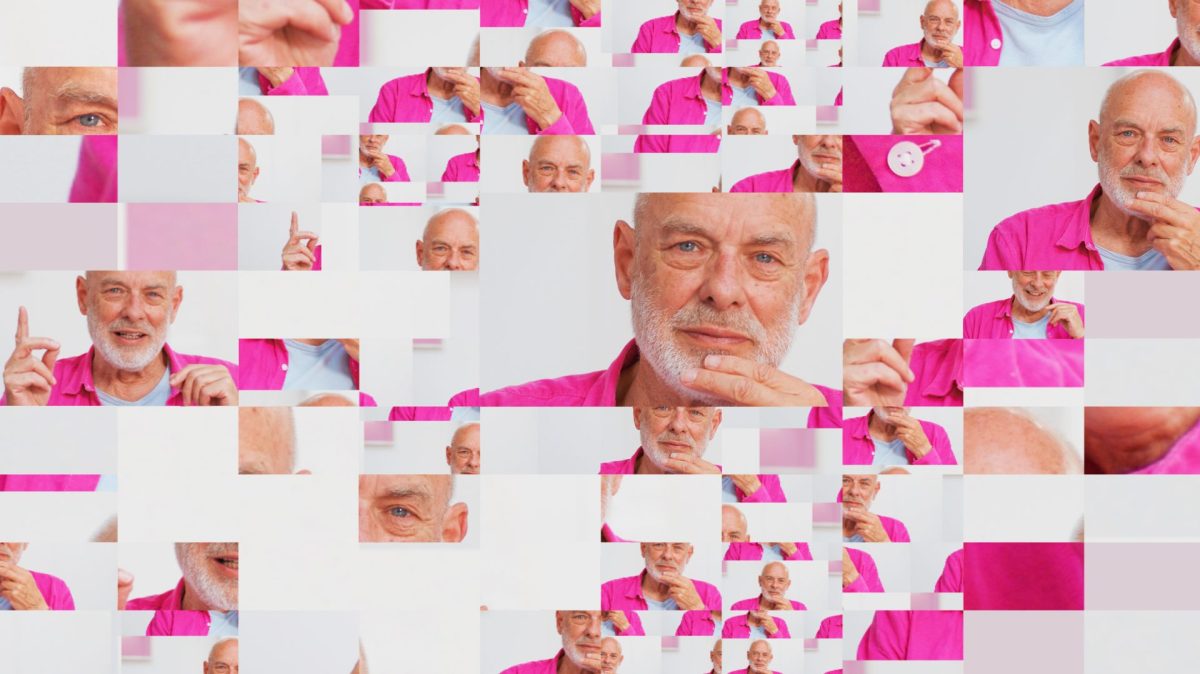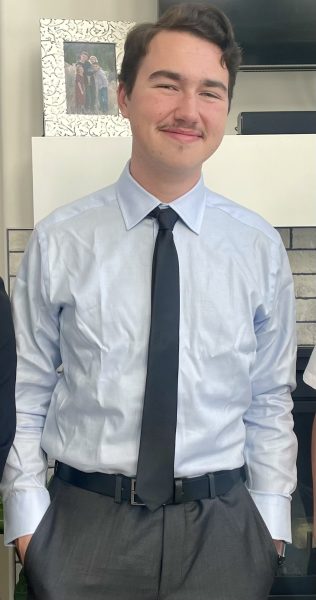While musician and producer Brian Eno may not have an instantly recognizable face, the same cannot be said for his music. Known for his ambient pieces and collaborations with artists like U2, Talking Heads and David Bowie, Eno has been a staple of the music world since the early 1970s. Now, Eno is the focus of one of the most interesting films of the 2024 Sundance Film Festival.
It should be noted that this is a review of the “Eno” screening that occurred on Jan. 19, 2024 at 9:00 P.M. at the Megaplex Luxury Theatres at The Gateway in Salt Lake City. This is important to mention as director Gary Hustwit has chosen to release the film in a way that makes each screening unique. Using generative software, hours of edited sequences have been organized and sequenced to create a different film with each showing. With this process, even the filmmakers do not know how the film will play out. The final product is left in the hands of a program. Because of this, it’s hard to say if this review will still read as an accurate reflection of the film at any other screening.
Art Before Career
The cut of “Eno” I saw is one of the better documentaries about a musician to have come out in the last few years. It chooses to reflect on the ideologies of Eno rather than his career. Life highlights like being married, an album bombing or personal friendships are given little time. “Eno” would much rather focus on what art means to an artist and how an artist traverses the world. By doing this, it feels as if a lot more is learned about Eno as a person.
While being such a personal look and Eno, the film also opens into a far wider discussion about art, how it’s created and how it’s consumed. There are times it seems like the generative software has broken the thematic stream across different sections of the film. Usually the transitions between interviews with modern Eno, younger Eno and general archive footage feel natural and thoughtful.
In this way, “Eno” becomes less of a spotlight on the artist and more like a conversation. This is only made truer with multiple relatable moments sprinkled throughout like Eno yelling “Shut up!” at a Grammarly and Vrbo ad before a Youtube video.
As one of the filmmakers said at the Q&A following the film, Eno wanted to avoid a bio-doc with hundreds of musicians deifying his work. Huswit and his team successfully avoid this. They create something much more poignant in the process. Like the documentary “Moonage Daydream” did for David Bowie, “Eno” explores the artist’s creative process and vision of Earth through art. This is how most bio-docs on artists should be done.
Antithetical Choices
Unfortunately, the generative software gimmick Hustwit chose holds “Eno” back from receiving all the praise it may deserve. The idea is fun, being a reflection of Eno’s own use of generative software to create music. The difference is, when Eno uses these computer programs, it’s just a tool. The final song or sound is still his. With the film, the final cut loses a human rhythm in the edit. It often seems like it’s about to end but then it continues.
On top of that, it’s incredibly frustrating knowing there are hours of footage that audiences won’t be able to see. The way the filmmakers put it, the generative software makes each screening a personalized experience for the viewer. In this, they seem to have forgotten that art becomes personalized from different human experiences. A painting may never change but will mean different things to a million different lives. The filmmakers have stolen that from the audience, never allowing them to fully interpret the film that was made.
No one can have a full experience with “Eno” since it will never be one singular vision. While the philosophy of the filmmaking team can be appreciated, there’s a naivety to it.
When someone asked at the Q&A how distribution of the film would work, one of the filmmakers claimed, “No one’s ever done this before. … We make the rules!” By saying this, it seems the team forgot the section of the film where Eno had his creative vision undermined by his music distributor despite being reassured his vision would be respected. But, perhaps they missed that cut of the film.



